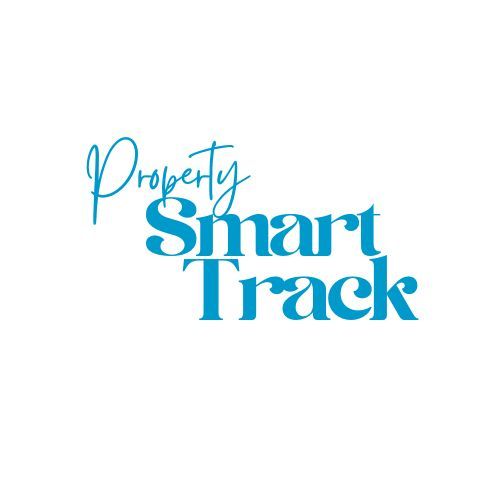Seven Property Horror Stories and Lessons They Teach

We've all heard endless stories of property achievements, but success is not guaranteed. Planning and good research will mitigate risks, along with knowing what to avoid and how to avoid it.
Outlined below are real situations where unsuspecting individuals have found themselves in difficult property scenarios. Some appear worse than others from a financial perspective, but often the biggest impact can be in the time lost or opportunities missed after a bad purchase.
Purchase : Six new properties in one street in a regional town
After a few years thinking about investing, Robyn and her husband Mark decided to dive in deep as they were in their early 50's and felt time was running out to prepare for retirement. Keen to get a quick start, they found a 'great' advisor who helped them use the equity in their home to buy six house and land packages in the one street.
Horror – after all the contracts were signed and the building commenced, they realized they would have limited ability to rent the properties due to the number of other new properties on the local market. In addition, the property values began to decrease and they realized the properties would not deliver the positive cash flow the 'advisor' had promised.
Lessons – ensure you compare any new properties with similar purchases in surrounding locations. Robyn and Mark would both now tell you it was a moment of madness when they decided to purchase six properties in the one street. They now know they should spread their purchases across a range of areas in future. Also, 'positively geared' properties of this type only remain positive if you continue to work.
Purchase : House and land package in hot Sydney market
With the Sydney market in property overdrive, first home buyers become easy prey for unscrupulous developers. Ian experienced this first hand. After missing out on a series of land releases, Ian acted to get in early on a new release in his target area.
Horror – Along with the heavy sales pressure to sign up or miss out on a purchase, contracts included the requirement to release 10% of the purchase price to the developer on land that was not registered. This amount was to be allocated to the land content, with no house / building contract issued. The funds were to be made available to the developer rather than kept in trust until key milestones were passed.
Lesson – Even if you're purchasing in a hot market, order a copy of the contract and have your solicitor look it over before your cooling off period expires. While some negotiation may be required, you have every right to strike out conditions that put you at a disadvantage. In this scenario, the funds may have been lost if the developer had struck problems or if the market changed before the project was completed.
Purchase : New townhouse in emerging area
Ten years ago, Brad was looking for a new property to add to his portfolio. He found a new townhouse for a great price in an area that was being developed. The property marketer and the materials outlined the vision for the area which included a host of new amenities such as cafes, shopping precinct, parks and lovely water features.
Horror – At first, Brad bought the line that the amenities were on the way. However, after ten years of waiting all Brad got was a property in the middle of a housing glut along with no amenities, and no capital gain. He sold at a loss in order to re-position his finances and obtain funding for further purchases.
Lesson – if you're buying into a new development, ensure there's enough population and economic pressure to support the development's completion. Research the developer to uncover their track record and quality of delivery, view or visit their recent developments and, ideally, speak to previous customers to obtain impartial views on the quality and service outcomes.
Purchase : Town house purchases without checking strata fees or sinking fund balance
Peter and Jenny were looking for positive cash flow properties where the rent would cover the cost of property. They undertook extensive research and focused on a good area where they found three town houses in a complex of 45 that included a pool, gym, barbeque area with onsite property managers.
Horror – Peter and Jenny didn't include the strata fees in their calculations, but this didn't end up being too much of a problem as they believed the capital growth in the area would soon cover the extra cost. The real shock kicked in when they finally read the minutes of the latest strata meeting noting the extensive costs required in the sinking fund. Extensive work was required to maintain the grounds and repair major issues with the pool and the remote controlled security fence.
Lesson – once again, even though it may seem like you will be saving time, it is best to buy in a range of areas or locations and avoid purchasing multiple properties in the same complex (or street). Remember to factor in all costs when making a purchase decision, obtain a copy of the strata documentation and have all contract documents reviewed by your solicitor prior to purchase.
Purchase : NRAS property with positive cash flow
Karen and Ray were attracted to the philosophy of the National Rental Affordability Scheme (NRAS) as well as the cash flow the property could produce. Guided by an NRAS property 'specialist' they purchased a duplex for $375,000 with an estimated rent of $350 + $192 per week.
Horror – tenants were found initially, but after 12 months it was almost impossible to find tenants so they dropped the rent by $80 per week. Repairs required due to the time the property was vacant were an unplanned cost plus management fees and NRAS compliance costs added up to 20% of the monthly rent. To make matters worse, the promised NRAS credits were delayed by almost six months. In addition, Karen and Ray found out the banks do not rate these properties highly and which meant their ability to purchase further property was severely diminished.
Lessons – like Defence Housing, the NRAS running costs are more than double the normal property management fees. For some reason, investors are drawn in by the 'guarantee' of rental continuity but this is often not as consistent as a well located non-DHA / NRAS property. Any property that comes with a 'rental guarantee' is a property that does not have enough demand to attract a competitive rental return and should be avoided.
Purchase : Great property from a bad real estate agent
This example is one from The Property Frontline catalogue. We were looking to purchase a splitter block (where one property can be split into two) for a client. We found the perfect property and commenced negotiations with the 'friendly' agent. The agent was so helpful, he even offered to coordinate building repairs and pest treatment when issues were identified during the inspections.
Horror – the pest treatment quote came in at 25% of the price we expected to pay, and the agent flim-flammed around providing a written building quote suggesting this information could be provided upon settlement. In addition, the agent hadn't passed on the building and pest inspection reports despite being instructed to do so, and had advised the seller we would be asking for a $2,000 price reduction when we had not advised the agent of any such information.
Lessons – we went direct to the service providers – the pest controller and the builder – and found that the agent had directed them to provide 'cut down' quotes. We requested full written quotes from both providers and ended up with much more realistic documentation which we then used to justify a $10,000 reduction in the purchase price.
Horror example number seven
It seems everyone has a property story and we would love to hear yours. Please send your example to us at debra@propertyfrontline.com.au or add your story to our Facebook page. We find people feel better after they share their stories and there's the extra benefit of helping to protect your fellow property buyers from falling into easily avoidable traps.
About the Author
Debra Beck-Mewing is the CEO of The Property Frontline and Editor of Property Portfolio Magazine. With over 20 years of experience buying property across Australia, Debra is a skilled property strategist and buyers agent known for uncovering tailored opportunities — from family homes to multi-use investments.
She has deep expertise in advanced strategies including renovations, granny flats, sub-division, and development. A Qualified Property Investment Advisor (QPIA®), licensed real estate agent, and holder of a Bachelor of Commerce and Master of Business, Debra combines strategic insight with hands-on experience.
Debra is the creator of the Property Smart Track™ – Australia’s only interactive, in-the-moment support system for property buyers, designed to help buyers cut through the chaos and buy with confidence. She also leads Buy Like A Genius™, a premium end-to-end buyers’ agency service for busy professionals seeking expert property acquisition without the stress.
As a passionate advocate for greater transparency in the property and wealth industries, Debra is a sought-after speaker, author, podcast host, and participates on numerous committees including the Property Owners’ Association.
Download your guide
Start Buying - Stop Crying
There’s plenty of opportunities if you’re trying to buy a property in the current market, and the news gets better if you qualify for financial assistance packages.
DON'T GUESS, STRESS OR OVERPAY
Learn how to turn the market in your favour no matter where it heads next, by using the tips included in our guide.
We hate SPAM. We will never sell your information, for any reason.






